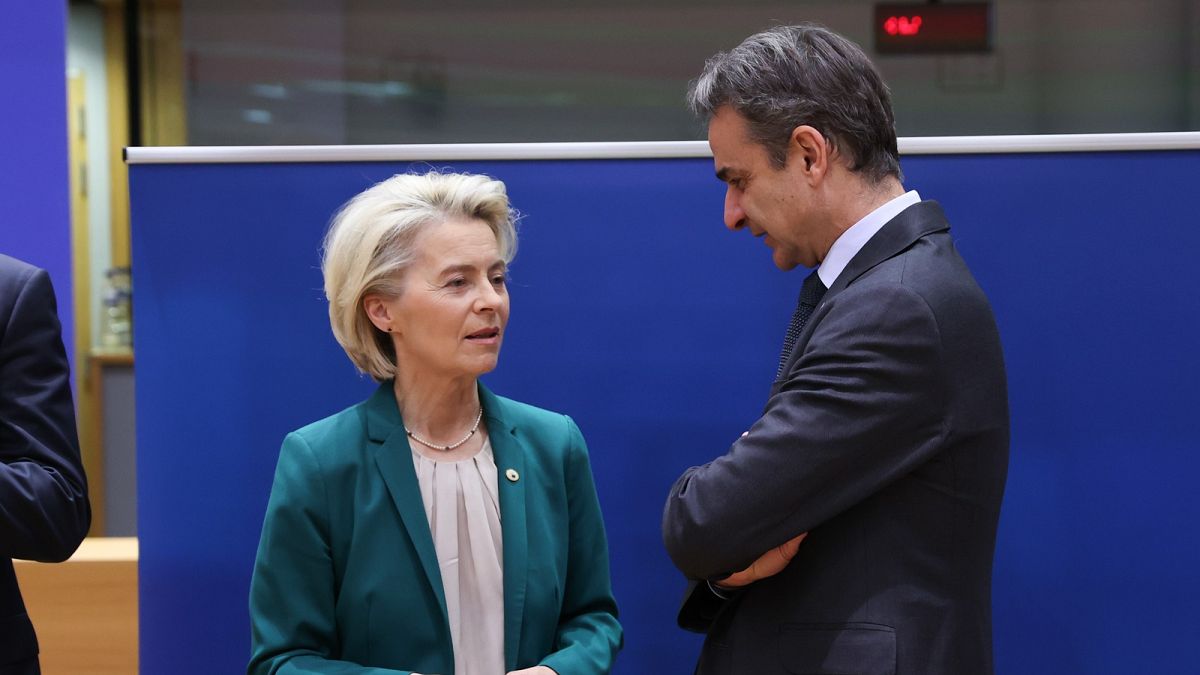Jobs
Von der Leyen to recuse herself as leaders discuss EU top jobs

Following the elections to the European Parliament, the 27 leaders are set to haggle over the bloc’s political leadership for the next five years.
Ursula von der Leyen, the incumbent president of the European Commission who is aiming to secure a second term, will recuse herself from the room as leaders gather on Monday for an informal discussion about the European Union’s top jobs.
These negotiations are the immediate next chapter after the elections to the European Parliament and will decide the bloc’s political leadership for the next five years.
The jobs up for grabs are President of the European Commission, President of the European Council and High Representative for Foreign Affairs and Security Policy.
The distribution needs to be done – at least, in theory – according to the results of the elections, taking into account political, geographical and gender balance.
With the centre-right European People’s Party (EPP) securing a comfortable victory of 190 seats, its lead candidate, Ursula von der Leyen, is in pole position to secure the necessary backing of the 27 leaders and cement her re-appointment.
But will heads of state and government decide her future in her presence?
Not exactly. On Monday, von der Leyen will only attend the exchange of views with European Parliament President Roberta Metsola, which traditionally kicks off every summit, and a discussion on the bloc’s strategic agenda, an in-the-works declaration of the political priorities for the next five years.
After that, she will leave the room.
“This will be followed by a dinner, which will be leaders’ only (where) the topic of discussion will be top jobs in the European Union and, there, the President will not be present. It’s leaders only,” a Commission spokesperson said on Friday.
The presence, or absence, of von der Leyen during the informal summit attracted speculation in the last few days, particularly due to her long-standing rivalry with European Council President Charles Michel, who, as host, sets the agenda.
Their frosty working relationship deteriorated after the so-called Sofagate, a protocol fiasco that made international headlines in 2021. Since then, it never recovered.
Michel, whose term, unlike von der Leyen’s, is limited by terms, has been accused of trying to sabotage her re-election, something denied by Michel’s spokesperson.
Von der Leyen is well-liked among members of the European Council so her selection is nearly guaranteed to happen, if not on Monday then on 27 June when EU leaders next gather for a formal summit.
After that, her nomination will be subject to a hearing in the European Parliament, where she will need 361 votes in favour. This second phase is trickier and will involve intense talks with the main pro-European parties: the Socialists, the Liberals and, possibly, the Greens.
The presidency of the European Council is expected to be given to the Socialists while the Liberals, who suffered painful losses in the elections, will take the High Representative.
Picking a name for the foreign affairs position could prove awkward during the leaders’ dinner, as two of its current members, Estonia’s Kaja Kallas and Belgium’s Alexander De Croo, are considered credible candidates for High Representative.
Coincidentally, Kallas and De Croo have been designated by the liberal family to lead the political negotiations on their behalf. Poland’s Donald Tusk and Greece’s Kyriakos Mitsotakis will represent the EPP, while Germany’s Olaf Scholz and Spain’s Pedro Sánchez will speak for the Socialists.


)






